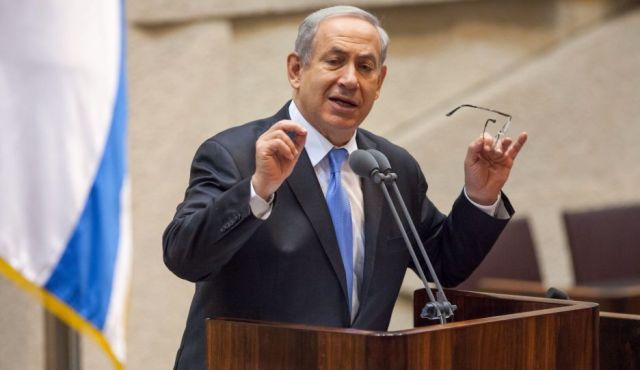IN THE MEDIA
Netanyahu likely to seek to broaden his narrow coalition
May 15, 2015 | Colin Rubenstein

Colin Rubenstein
Brisbane Times – May 15, 2015
Last December, Israeli Prime Minister Benjamin Netanyahu, the head of a centre-right government of 68 members in the 120-seat Knesset, called for new elections after disputes with several coalition members. On March 17, Netanyahu’s Likud party emerged as the clear winner, with a seemingly comfortable path to a right-wing government of 67 seats, if desired.
How is it that Netanyahu only managed to eke out a precarious, tenuous 61-member centre-right coalition, and why was it confirmed only last Wednesday, literally the last hour of the allowed coalition-building period?
The answer lies in the right-wing party that chose to sit in opposition rather than accept the terms offered to it. What were the reasons that party’s leader, Avigdor Lieberman of Yisrael Beiteinu, gave for not joining?
Yes, he was annoyed by Netanyahu’s promises to the ultra-Orthodox parties, such as diluting laws forcing ultraorthodox Israelis to perform national service and reinstating welfare benefits for ultraorthodox Jews who prefer to avoid the workforce by remaining in religious studies, though he had sat in governments with them before. More importantly, he said, Netanyahu rejected Yisrael Beiteinu’s right-wing legislative agenda and refused to give up on bringing the centre-left Zionist Union into a unity government.
Netanyahu insisted that all coalition agreements included Article 5, whichspecified that the agreements could be re-negotiated if the coalition grew larger than 70 seats. As Lieberman pointed out, the Zionist Union is the only party likely bring the government’s total to more than 70 seats.
To date, Isaac Herzog’s Zionist Union party remains firmly outside the coalition and resistant to joining, but the parameters of Netanyahu’s new government, and the time it took for the coalition to be formed, all suggests it has not been for the lack of Netanyahu trying.
Despite some significant concessions that were necessary to bring Naftali Bennett’s right-wing Jewish Home party into the government, Netanyahu was also careful not to form any government that the Zionist Union would be unable to join sometime in the future. Moreover, given the considerable international pressure Israel now confronts both on the Iran nuclear issue and pro-Palestinian resolutions in the United Nations Security Council, the momentum for such a unity government within Israel is growing.
For example, the Housing Ministry, a sensitive portfolio in relation to the controversial West Bank settlement issue, has been taken out of the hands of pro-settler Jewish Home and given to the centrist party Kulanu. This move surely heralds a continuation of Netanyahu’s policy of building fewer homes in the West Bank – and those solely in existing settlements and overwhelmingly in the blocs Israel expects to keep in exchange for land swaps in any peace deal – than the prime ministers who preceded him. This gives the lie to critics who incorrectly argue settlement “expansion” is making a Palestinian state geographically impossible.
Netanyahu and Herzog also continue to see eye-to-eye on defence matters, including the paramount imperative to push for a better nuclear deal with a totally unreformed, revolutionary, repressive Iran to effectively prevent Tehran from developing nuclear weapons capability, both today and in the distant future, and the catastrophic consequences that would create for Israel, for the region and globally.
Similarly, Netanyahu and Herzog share a belief in Israel’s long-term need for a secure, negotiated two-state peace outcome with the Palestinians. At the same time, they oppose risky, short-sighted initiatives such as a reported French-inspired and New Zealand-backed UN Security Council resolution which would impose a deadline for the establishment of a Palestinian state – a serious disincentive for Palestinian compromises and willingness to resume bilateral negotiations, the only constructive way forward.
They agree that such a move does not take into account the dangerous realities on the ground, including the strength of Hamas and its rejectionist allies who are sworn to continue trying to destroy Israel even after a Palestinian state is created. They believe the move would undermine prospects for a secure peace, not improve them.
A Palestinian state created in the absence of a genuine peace agreement that the Palestinian people would both embrace and implement would be dangerous for Israel, but even worse for the Palestinians, removing the most convincing incentive for Palestinians to end their conflict with Israel. It could, potentially, encourage the kind of open-ended instability and bloodshed that has devastated other parts of the Middle East.
This is why Herzog did not promise a pie-in-the-sky peace agreement with the Palestinians during the recent election campaign, but only vowed to try and improve relations with the Palestinians and to explore the possibilities for moving things incrementally in a positive direction.
This is also an approach which Netanyahu, who voiced scepticism over the likelihood of an agreed Palestinian state in the short-term – given Palestinian division and pursuit of a hostile, aggressive unilateral strategy at the United Nations and other international bodies – can readily support. Many analysts believe Netanyahu, who has kept the all-important Foreign Ministry portfolio to himself, is holding it in reserve for Herzog in the hope that the issues preventing the Zionist Union from joining the government can be resolved.
Of course, this broadening may not be achievable and the seemingly untenable 61-seat government may persist. Yet despite the obvious pressures and frequent crises it is likely to confront, it may, like other similarly narrow governments in Israel’s past, endure longer than anticipated.
Whether Netanyahu’s coalition remains at 61 seats or can be expanded with the inclusion of Herzog’s Zionist Union or a Yisrael Beiteinu that is ready to lower its demands, Netanyahu appears firm in his resolve to tack to the centre as much as possible and resist pressure to move towards more extreme positions, even if doing so may risk yet another round of early elections.
Dr Rubenstein is executive director of the Australia/Israel and Jewish Affairs Council.
Tags: Israel





